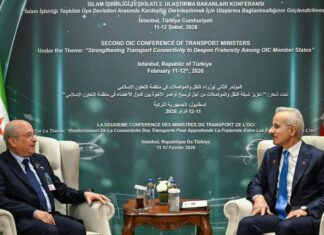
Turkish authorities have conducted extensive raids on money transfer offices and exchange bureaus across the country, resulting in the arrest of at least 46 individuals and the seizure of millions of dollars. The crackdown has implicated some of Istanbul’s most prominent financial offices and is part of a broader effort to address alleged links between these businesses and illegal activities.
The Turkish government has accused these offices of financing terrorism and facilitating human smuggling. Officials claim that substantial funds are being funneled through these offices to extremist groups. They allege that large deposits are made in major offices from smaller exchange centers in areas with terrorist activity, facilitating the transfer of funds to these groups.
Critics argue that this crackdown is part of Turkey’s broader strategy to exert pressure on Syrian refugees and their businesses. They contend that the government is using counter-terrorism as a pretext to undermine the economic stability of Syrians in Turkey, effectively pushing them to leave the country. The closure of money transfer offices handling transactions to northern Syria, justified by the authorities as a counter-terrorism measure, has significant repercussions. Nearly $100 million in assets have been frozen, causing substantial financial losses for Syrian exchange dealers. Going forward, there is uncertainty about how remittances to northern Syria will be managed, with some speculating that transactions might be restricted to the PTT, Turkey’s national postal service, which currently operates in northern Aleppo.
This initiative coincides with Turkey’s efforts to improve its international financial standing. In February, the Finance Minister announced a commitment to addressing the deficiencies highlighted by the Financial Action Task Force (FATF), aiming to remove Turkey from the “grey list” in the upcoming review.
The grey list, used by FATF, identifies countries with strategic deficiencies in combating money laundering and terrorist financing. Being on this list has serious implications for a country’s economy, including increased costs of doing business, slower economic growth, and reduced foreign direct investment. For Turkey, exiting the grey list is expected to enhance its financial reputation, attract more foreign investment, and support economic growth.
However, the impact of these measures on the Syrian refugee community and their businesses is profound, raising questions about the humanitarian consequences of Turkey’s new policies. As the country navigates these complex issues, the outcomes of the recent raids and efforts to exit the grey list will be closely monitored.








